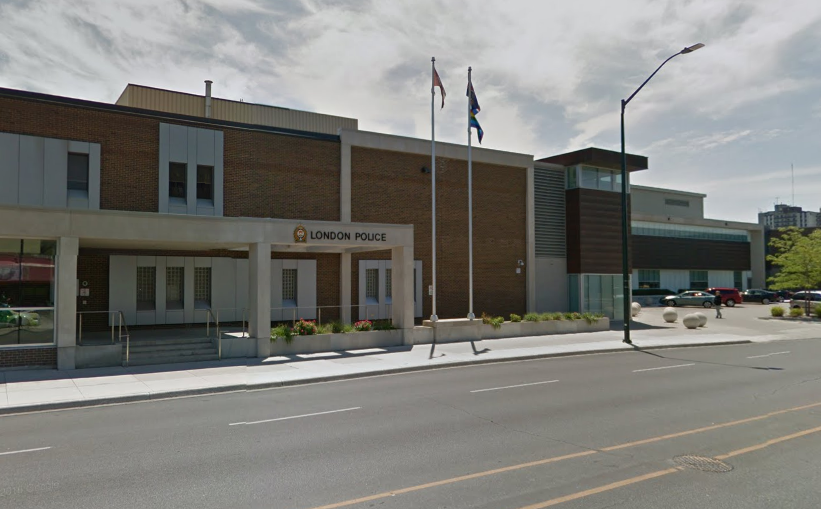The London Police Services Board (LPSB) says it has long been concerned about the now-blocked provincial COVID-19 database and it’s expecting more information about local use of the data from the London Police Service (LPS) at next month’s board meeting.

The board confirms it has received a letter from the Canadian Civil Liberties Association — writing on behalf of itself, Aboriginal Legal Services, Black Legal Action Centre, and HIV & AIDS Legal Clinic Ontario — that calls on the board to request an audit into what the CCLA described as the “abnormally high” rate which London police have been accessing the province’s COVID-19 database.
Police forces are no longer able to access that database and the CCLA, ALS, BLAC, and HALCO have discontinued litigation as a result. Yet during the roughly three-month span that police across Ontario had access, they searched it 96,815 times.
“We are pleased that the Ontario government has backed away from this intrusive and discriminatory measure. We remain deeply concerned, however, about the information that police services across the province have already amassed,” CCLA criminal justice program director Abby Deshman told Global News.
“Individuals’ health information is deeply personal, sensitive information; opening up a database of medical testing results to police was an unprecedented privacy violation.”
The groups are now calling on all police forces to “immediately delete the personal health information that was collected through this database.” They are raising additional concerns about five police services in the province that had the highest rate of use of the database, which includes the London Police Service.
Local use of the database
According to the letter to the London Police Services Board from the CCLA, London police accessed the provincial COVID-19 database 10,475 times while it was active. Factoring in the population served by the LPS, the CCLA said it had the fifth-highest rate of use on a per capita basis. Ignoring population, the LPS accessed the database the fourth-highest number of times.

Get weekly health news
“London Police Service was one of the heaviest users of this database, running over 10,000 searches in the few months the data was accessible.”
“We have asked the London Police Services Board and the Chief of Police to conduct an audit of their use of this database and delete any personal health information that they are still storing locally,” Deshman said.


In the letter, the CCLA says the high rate of use raises concerns “about whether the database was being used appropriately and whether this large amount of personal information is still being used locally.”
Between April 17 and July 20, when LPS accessed the database 10,475 times, the Middlesex-London Health Unit recorded 646 confirmed cases of the novel coronavirus.
The human rights groups say an audit should look at whether all requests were made by authorized users, whether they were made for authorized purposes, and seek reasons for such “abnormally high access requests.”
Response from the London Police Services Board
In a statement emailed to Global News, LPSB chair Dr. Javeed Sukhera stressed that the database, which includes “the individual’s name, address and date of birth and whether the individual has had a positive test for the COVID-19 coronavirus,” has long been a concern for the board.
“The Board shared these concerns with the Minister of Health, Solicitor General and Premier in a letter dated June 18th, 2020,” he wrote.
In particular, Sukhera’s June 18 letter to the government outlined concerns about community members who could be “disproportionately impacted,” such those who are Black, Indigenous and people of colour, as well as those who work as sex workers.
“These communities have longstanding mistrust with both the health and policing sectors,” Sukhera wrote. “We are concerned that fear of disclosure could limit help-seeking for individuals from these communities who suspect that they may have symptoms of COVID-19.”
On Wednesday, Sukhera added that the board also passed a policy at its June meeting, directing Chief Steve Williams to “develop and maintain procedures” to ensure safeguards regarding the use of personal health information and the destruction of data.
“We requested detailed reporting from LPS which we anticipate we will receive at our next Board meeting in September,” Sukhera said.
“Once we have the answers, it is our intention to respond to the letter (from the CCLA) and provide the information being sought. This will be shared with the public so they are aware of the answers. The LPSB remains committed to transparency and takes these issues very seriously.”
The London Police Services Board’s next meeting is scheduled for Sept. 17.
Global News has reached out to the LPS but was told the chief and deputy chiefs would not be providing comment at this time.

— with files from The Canadian Press.











Comments